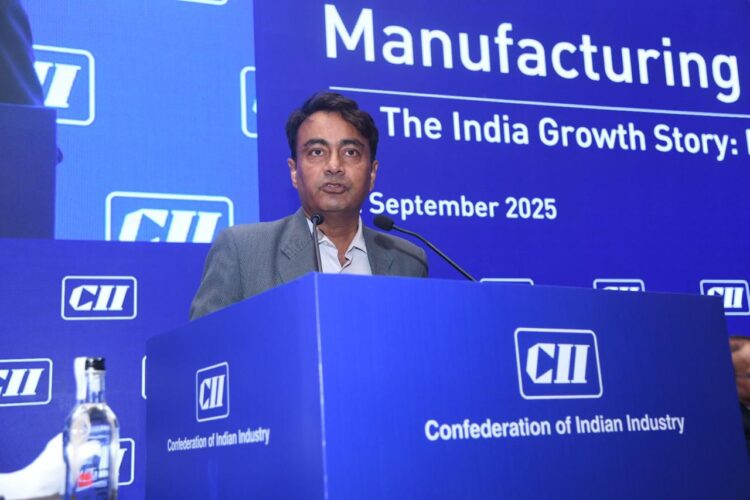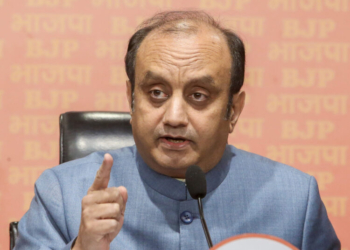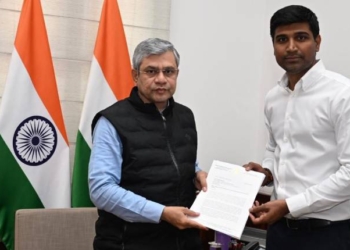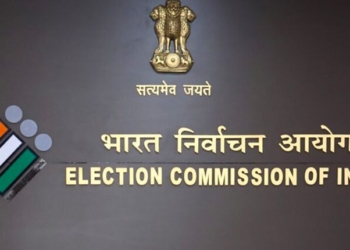New Delhi: India’s goal of a 25 per cent GDP contribution from manufacturing needs strong State-Centre collaboration, streamlined policies, and Industry 4.0 skills, Rajeev Singh Thakur, Additional Secretary, NITI Aayog has said.
At the CII Manufacturing Conclave 2025, Thakur said India should leverage schemes like the Jan Vishwas Act for regulatory ease. Land reforms simplifying acquisition and usage will unlock industrial potential, and learning Industry 4.0 skills will ensure a workforce adept at producing competitively priced goods for global markets, he added.
Southern and western states have taken the lead and are the most business-friendly, with northern and eastern regions improving, he said.
The government is playing its part more aggressively, gradually simplifying rules, procedures, and guidelines to make business more friendly, he added.
Thakur has called for the private sector to expand its capacity and investment, as public investments in infrastructure, including roads, highways, ports, and airports, are generating opportunities.
The Manufacturing Sectoral Snapshot Report was released at the conclave, that presented flash studies on six focus sectors, Industrial Automation & AI, Footwear, Smart & Green Tyres, Plastics, Foundry, and Hands & Power Tools.
To realise the Vision of Viksit Bharat 2047, India must prioritise technology adoption, integrating Industry 4.0 solutions like automation, IoT, and AI to enhance productivity and quality across these sectors, the report said.
The report said that policy interventions, including rationalising import duties, promoting domestic raw material production, and streamlining logistics under initiatives like PM GatiShakti, would address structural challenges.
“The economic viability of R&D hinges on aligning research outputs with global market demands. By embedding intellectual property (IP) development within a robust commercialisation strategy, Indian firms can create competitive differentiated products for global markets,” said R Mukundan, President Designate, CII and Managing Director & CEO, Tata Chemicals Ltd.
India’s Manufacturing Vision 2030 aims to transform the nation into a global manufacturing hub, with key sectors playing pivotal roles to drive significant job creation, boost exports, and shift from low-cost production to innovation-led, sustainable manufacturing.
(IANS)
















